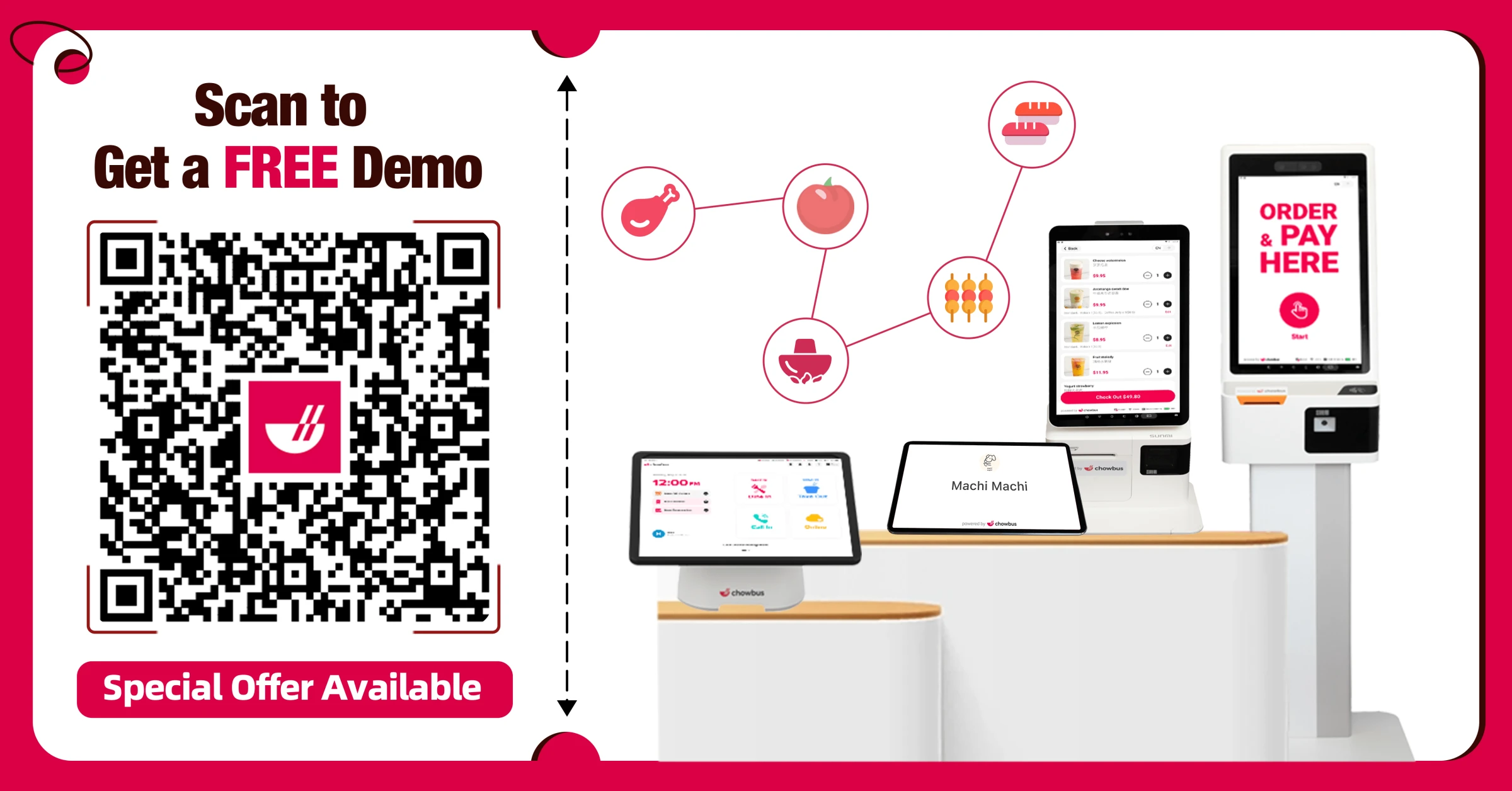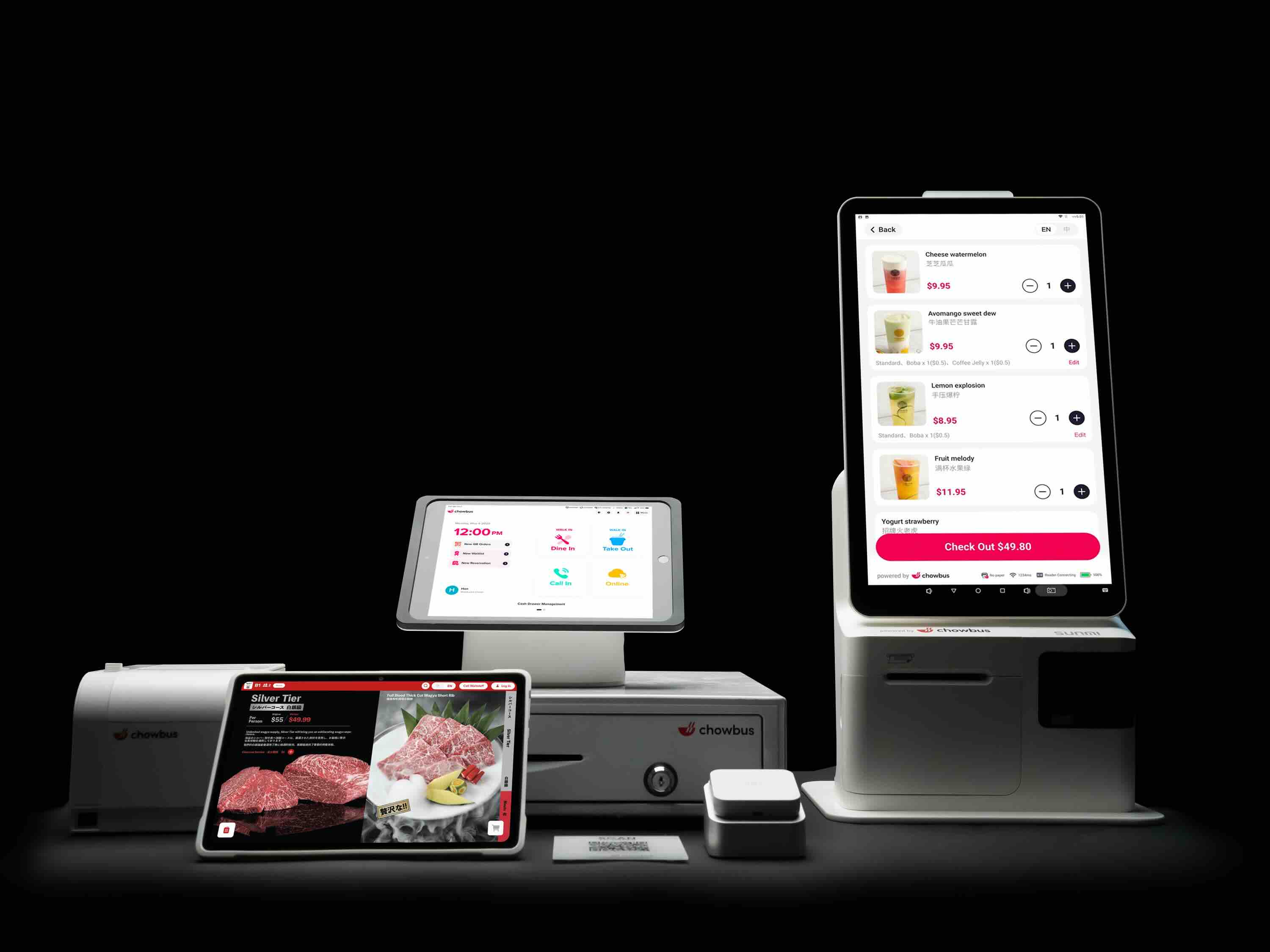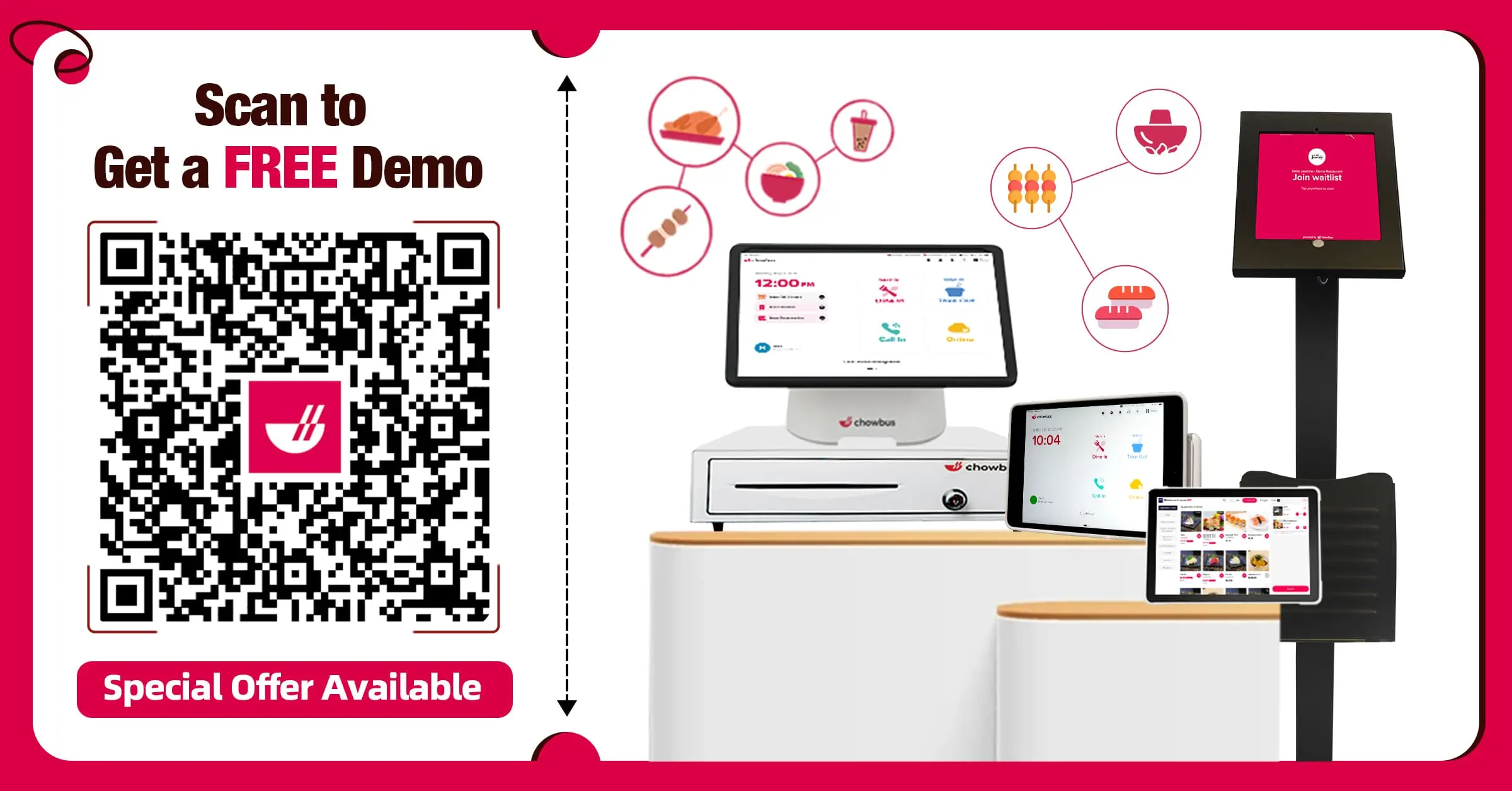What is Catering: Learn What is it and its Types

Understanding what is catering and the types of catering can open up a multitude of opportunities for those looking to dive into this lucrative business. Are you considering expanding your restaurant’s services or perhaps starting a fresh venture in the catering industry? This article will shed light on the essentials of catering, discussing various types that cater to different events and preferences. What does it take to excel in the catering world? Let’s find out.

What is Catering?
Catering refers to the business of providing food service at a remote site or a site such as a hotel, hospital, pub, aircraft, cruise ship, park, filming site, entertainment site, or event venue. However, it's much more than just delivering food. It embodies the planning, creation, delivery, and presentation of food for clients.
Unlike traditional restaurant services, catering requires adapting to new locations, customizing services for diverse events, and managing the logistics of serving food outside the confines of a fixed kitchen environment.
What is a Caterer?
A caterer is a person or company that manages the preparation, delivery, and presentation of food for events. Beyond cooking, caterers are responsible for menu planning, food styling, and ensuring the meal complements the event's theme or atmosphere. They work closely with clients to tailor services to specific tastes, dietary needs, and event specifications. Effective caterers excel in logistics, creativity, and customer service, making them pivotal to the success of any catered event.
What Services Do Caterers Provide?
Catering services can range from the simple delivery of prepared meals to the full management of a multi-course dining experience, including setup, service, and cleanup. These services often extend to menu planning tailored to the client’s needs, dietary preferences, and event theme.
Catering can also involve rental coordination for equipment and linens, event staff management, and even decor setup to enhance the dining atmosphere. This versatility makes catering a dynamic field, capable of adjusting its services to fit various event types and client expectations.
Types of Catering
Now, let's explore the various types of catering services available. Catering can be categorized into several distinct types, each with its unique requirements, client expectations, and event styles. Understanding these can help you decide which direction to take your catering services.
1. Corporate Catering
Corporate catering targets the business sector, providing meals for company meetings, events, and gatherings. This segment ensures that food and drink are provided in a professional manner, aligning with the corporate event's tone and requirements.
Types of Corporate Catering:
Breakfast: This service caters to morning meetings or events, offering everything from continental breakfasts with pastries and fruit to full hot breakfasts for a more substantial meal. It's designed to start the day right, with efficient setup and cleanup to minimize disruptions.
Luncheons and Barbecues: Perfect for mid-day events, whether indoors or outdoors, these caterings offer a range from simple sandwich platters to elaborate grills, fitting the casual or semi-formal atmosphere of corporate gatherings.
Conventions, Trade Shows, and Conferences: These events require catering that can handle a large number of attendees, often spanning multiple days. Offerings range from snack breaks to full meals, designed to keep participants energized and engaged.
Board Meetings: These smaller, more formal events demand high-quality food and service, focusing on premium ingredients and presentation to reflect the importance of the meeting.
Product Launches: Catering for these events is tailored to fit the theme or brand of the product being launched, often featuring innovative and thematic menus that highlight the product's features.
2. Wedding Catering
Wedding catering is a specialized service designed to provide memorable meals for the bride, groom, and their guests on the big day. This service can vary widely in style, reflecting the couple's preferences and the overall theme of the wedding.
Types of Wedding Catering:
Plated, Sit-Down Dinner: A signature feature of formal weddings, where guests are served a multi-course meal at their tables. This format allows for a curated dining experience, with each dish chosen in advance by the couple. It requires more staff but ensures a structured and elegant meal service.
Family-Style Dinner: Here, guests pass around platters of food to share, fostering a warm, communal atmosphere. This style blends the elegance of a sit-down dinner with the variety of a buffet, encouraging conversation and interaction among guests.
Buffet Style: Buffets offer guests the freedom to choose from a wider selection of dishes. This style is efficient for serving large groups and encourages guests to explore different flavors and cuisines at their own pace.
Food Stations: For a dynamic and engaging dining experience, food stations allow guests to customize their meals. From sushi rolls to freshly carved meats, each station offers something unique, catering to diverse tastes and dietary preferences.
Cocktail Receptions: Perfect for casual or intimate weddings, cocktail receptions focus on light bites and drinks. This setup facilitates mingling and socializing, setting a relaxed and festive tone.
Serve-Yourself Style: Informal and laid-back, this approach is ideal for outdoor or casual weddings. Whether it's a barbecue feast or a picnic spread, it allows guests to freely choose their food in a relaxed setting.
3. Social Event Catering
Social event catering focuses on providing food services for gatherings like birthdays, anniversaries, or social get-togethers. It's designed to enhance the event experience through culinary delights.
Types of Social Event Catering:
Stationary Platters: Stationary platters allow guests to enjoy a range of foods at their leisure, making them perfect for casual or networking events. This setup encourages guests to sample diverse dishes, catering to various tastes and dietary preferences.
Hors d’oeuvres: Hors d'oeuvres are essential for adding a touch of elegance to any gathering. These bite-sized treats stimulate appetite and conversation, setting the tone for the event.
Small Plates and Stations: This approach offers a dynamic dining experience, inviting guests to explore different cuisines and flavors across multiple stations. It's ideal for events emphasizing interaction and variety.
Three-Course Plated Dinners: Offering a structured dining experience, three-course plated dinners lend a sense of occasion and formality, often accompanying milestone celebrations.
Buffet: Buffets present a self-service option that accommodates large guest counts with ease, allowing for personal plate customization.
Outdoor BBQ: Embodying the spirit of casual, outdoor gatherings, BBQ catering brings a relaxed and communal dining experience, perfect for sunny days and informal events.
4. Concession Catering
Concession catering refers to the provision of food and drink services in public spaces or events, often characterized by quick, convenient service. This type of catering adapts to various settings, from outdoor festivals to indoor conferences, offering various food options to satisfy diverse tastes.
Types of Concession Catering:
Mobile Food Trucks and Carts: These mobile eateries bring the restaurant experience to the streets, offering everything from comfort food to exotic cuisines. Their mobility allows them to serve at various events, making them a versatile option for catering.
Pop-Up Concessions: These temporary food stalls can transform any event, providing guests with quick bites and specialized menus. Pop-ups are an excellent way to test new concepts or offer limited-time culinary experiences.
Stadium and Arena Concessions: Found at sports venues, these concessions serve a large variety of foods, from classic stadium fares like nachos and burgers to more sophisticated options, including sushi and craft beer. They cater to the needs of large crowds during games and concerts.
Festival Food Stalls: Similar to pop-up concessions but often found in larger numbers at outdoor festivals and fairs. These stalls can offer a diverse range of foods, including local delicacies, international cuisines, and specialty items like artisan ice cream or vegan options.
Theater Concessions: Enhancing the movie-going experience, theater concessions offer classic snacks and beverages, allowing guests to enjoy their show with their favorite treats.
Circus and Carnival Concessions: Bringing joy with every bite, these concessions offer fun, nostalgic treats that are essential to the circus and carnival atmosphere.
Convention and Exhibition Catering: These concessions serve the needs of attendees at large-scale events, offering everything from snacks to full meals, ensuring guests stay energized.
Corporate Event Catering: While not always thought of as traditional concession catering, some corporate events might feature concession-style service, especially in casual or large-scale settings. This could include food trucks, buffet stations, or themed food stalls.
Theme Park Concessions: Combining quick service with themed offerings, theme park concessions cater to families looking for fun and convenience.
5. Food Truck Catering
Food Truck Catering brings a unique twist to traditional catering by offering meals on wheels. This type of catering has gained popularity for its flexibility and the variety it offers to event attendees.
Types of Food Truck Catering:
Full-Service Catering: This option is similar to traditional catering but served from a food truck. The truck provides a complete meal for each guest, including appetizers, mains, and desserts, often with the option for customized menus.
Festival-Style Catering: In this setup, the food truck operates similarly to how it would at a food festival. Guests can walk up to the truck and choose from the menu items posted, giving them various options and the experience of ordering from a food truck.
Drop-Off Catering: Ideal for less formal events, this service focuses on delivering pre-prepared meals to the event location. Although the truck itself isn't present, this option maintains the novelty of food truck cuisine.
Food Truck Rallies: By assembling multiple food trucks, hosts can offer an expansive selection of cuisines and dishes, catering to the diverse tastes of their guests. This approach is excellent for large-scale events, providing variety and entertainment.
Late-Night Snacks: Adding a food truck as a source of late-night bites can pleasantly surprise guests, offering everything from comfort food to gourmet snacks as a memorable end to the event.
Dessert Trucks: Specializing in sweet treats, dessert trucks can add a delightful finish to your catering service. They can serve everything from traditional pastries to innovative desserts.
Custom-Themed Trucks: Some food trucks specialize in creating menus and experiences based around a specific theme, which can be tailored to the event's theme. This could include ethnic cuisines, historical periods, or specific dietary preferences like vegan or gluten-free.
Interactive Catering: Offering an interactive element, such as a build-your-own taco bar or a burger customization station, right out of the truck. It's engaging and allows guests to customize their meals to their preferences.
6. Restaurant Catering
Restaurant catering extends the restaurant’s culinary experience to various events and locations. It allows restaurants to showcase their menu beyond their premises, reaching a wider audience and adding a lucrative revenue stream.
Types of Restaurant Catering
On-Premise Catering: This option brings the restaurant's ambiance to your event, providing a familiar and controlled environment for gatherings. It's perfect for those who love the restaurant's atmosphere and wish to share it with guests during private events.
Off-Premise Catering: Ideal for bringing the restaurant's signature dishes to any location, whether a corporate office or an outdoor setting. It requires meticulous planning to ensure food quality and presentation meet the restaurant's standards.
Mobile Catering: Offers the flexibility to serve food in various locations, from festivals to street corners. It's a dynamic way to cater to the fast-moving, casual diner looking for quality food on the go.
Delivery Catering: Simplifies catering by delivering prepared meals directly to the event's location. It caters to those looking for the convenience of restaurant-quality meals without the need for setup or service.
Full-Service Catering: This type of catering provides an all-inclusive experience covering meal preparation, service, and cleanup. It is for clients seeking a premium, worry-free dining experience for their guests.
Drop-Off Catering: This service offers a no-frills approach by delivering food ready to eat. It’s ideal for informal gatherings or meetings where full service is unnecessary.
Concession Catering: Serves large crowds at public events, providing quick, easy-to-consume snacks and meals. It’s about speed and efficiency, catering to attendees looking for convenience.
Buffet Catering: Encourages a more interactive dining experience, allowing guests to choose from a variety of dishes. It suits events where flexibility and variety are desired.
Exploring these diverse catering options provides a clear pathway for expanding your culinary ventures. Whether you're aiming to diversify your restaurant's offerings or launching a new catering business, understanding the wide range of services and tailoring them to meet client needs can significantly impact your success.
Catering Industry Insights
The United States catering market witnessed significant growth, reaching USD 72.67 billion in 2023, with projections to hit almost USD 124.36 billion by 2032. This expansion is fueled by various factors, including an increase in social gatherings and the demand for professional food services.
Market Trends:
Health-conscious and ethnically diverse menus are in demand.
Sustainability in catering practices is becoming increasingly important.
The marriage rate rebound to 6.0 per 1,000 in 2021 indicates a strong market for wedding and celebration catering.
Technological advancements, like online ordering and efficient payment systems, are enhancing service delivery.
Growth Drivers:
PopUp Bagels and Flex Catering are examples of companies expanding and innovating within the industry.
The sector benefits from a strong foundation in restaurants and related establishments, particularly in regions like the Far West, where the California Restaurant Association notes a substantial economic impact.
Conclusion
Catering extends beyond the kitchen, touching every aspect of event planning and execution. It's an avenue for culinary professionals to showcase their versatility and for restaurants to expand their services. With the right approach, catering can open new revenue streams and broaden your brand's exposure.
As you consider the next steps in your catering venture, remember the importance of a robust operational foundation. The Best POS System for Catering and an effective online ordering system are instrumental in streamlining operations and enhancing customer satisfaction. Explore how Chowbus's all-in-one restaurant POS system can elevate your catering business by signing up for a free demo or consultation today!

Frequently Asked Questions About What is Catering
Discover everything you need to know about catering with our comprehensive FAQ section. Here, we answer your most pressing questions on what catering involves, its various types, purposes, services, and how it integrates within a restaurant setting.
What Catering Means?
Catering refers to the professional service of preparing and providing food and beverages for events and gatherings. This service can range from simple meal deliveries to full-service setups that include not only the food preparation but also the provision of servers, dishes, and decorations, tailored to the specific needs and preferences of the client.
What are the Two Main Types of Catering?
The two main types of catering are on-site catering and off-site catering. On-site catering involves preparing and serving food at the same location where the event is held, offering convenience and the option for custom menu adjustments. Off-site catering, on the other hand, involves preparing food at a separate kitchen or facility and transporting it to the event location, allowing for flexibility and the ability to cater at various venues.
What is the Purpose of Catering?
The purpose of catering is to provide food and drink services for events, ensuring guests enjoy high-quality meals without the host needing to manage meal preparation and service.
What is the Meaning of Full Catering?
Full catering refers to a comprehensive service provided by caterers that includes preparing, delivering, setting up, and presenting food and beverages for events. It often covers additional services like providing tableware, staffing for serving food, and cleaning up after the event.
What is Catering Services?
Catering services refer to businesses that prepare and deliver food for various events and occasions. These services can range from providing meals for small gatherings to elaborate feasts for large events. Catering professionals handle food preparation, presentation, and sometimes service, ensuring guests enjoy high-quality, delicious meals tailored to the event’s theme or the client’s specific requests.
What is Catering in a Restaurant?
Catering in a restaurant refers to the service of preparing and delivering food for events held either within the restaurant’s premises or at external locations. This service enables customers to enjoy the restaurant’s menu offerings at private parties, corporate events, weddings, and other gatherings without the need to cook or arrange food themselves. It often includes not only the provision of meals but also setup, serving, and cleanup services to ensure a seamless dining experience.
What is a Catering Business?
A catering business provides food and beverage services for events such as weddings, business meetings, and parties. Unlike restaurants, which serve customers at their own locations, caterers bring their services to various venues or clients' homes, offering meals prepared off-site or on-site, depending on the event's needs. Catering services can range from simple meal delivery to full-service options that include setup, food service, and cleanup.

Recommended Articles: